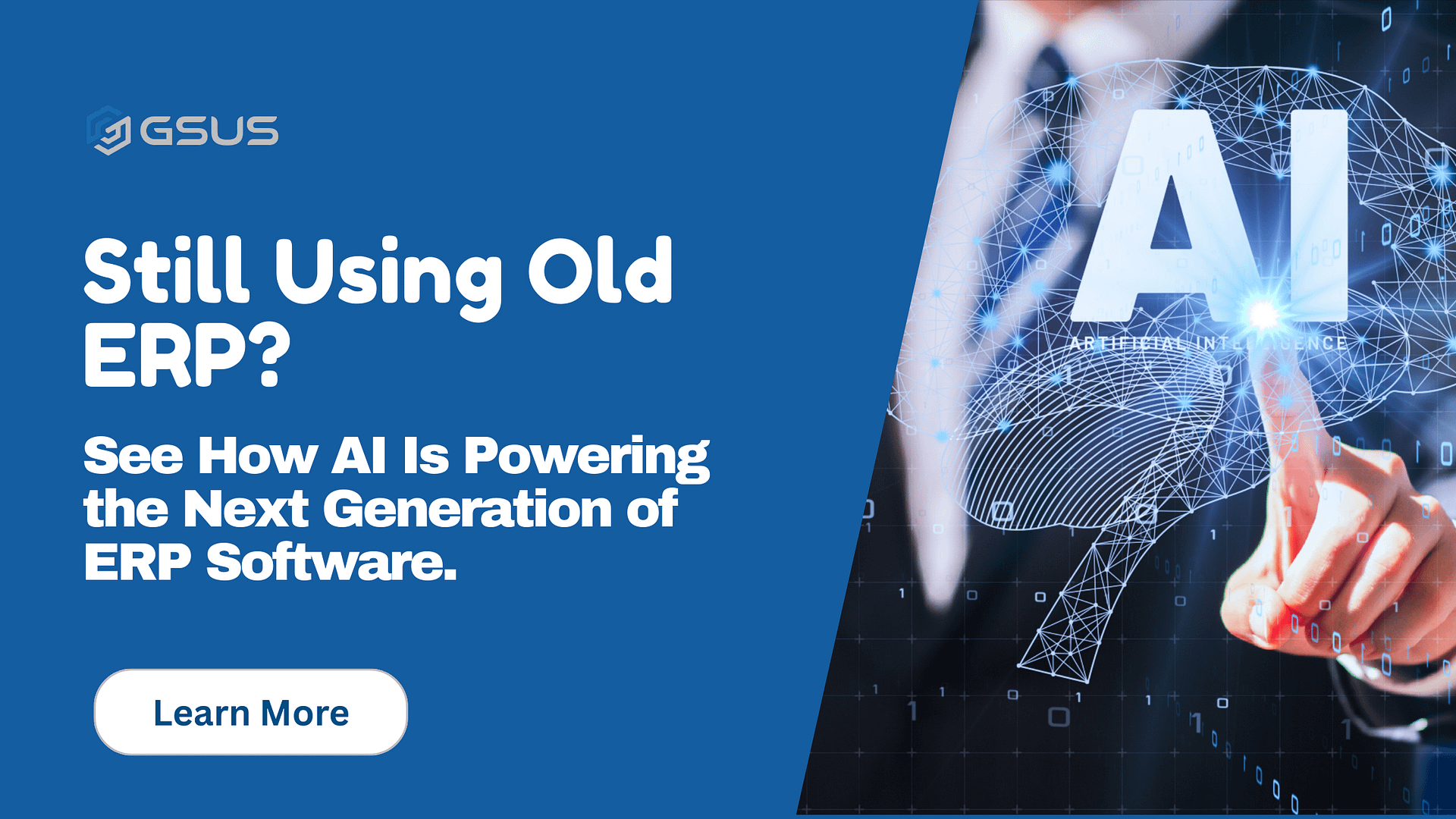Introduction: ERP Just Got Smarter
ERP software has always been essential for managing operations, but traditional systems often struggled with data overload and slow processes. In 2025, Artificial Intelligence (AI) is redefining how ERP platforms operate—making them intelligent, predictive, and more business-aware.
For Indian businesses navigating competition, compliance, and cost pressures, AI-powered ERP systems are no longer optional—they’re the foundation of scalable, future-ready operations.
1. Intelligent Workflow Automation
AI automates repetitive tasks like invoice processing, payroll calculations, and inventory updates. This allows employees to focus on high-value work, improving productivity across departments.
A Deloitte report highlights that 73% of businesses using AI in ERP noted faster operations and fewer errors in manual workflows.
2. Predictive Forecasting and Demand Planning
AI algorithms analyze historical sales, market trends, and supply chain data to predict future needs. This helps manufacturers and retailers reduce stockouts, cut excess inventory, and improve customer satisfaction.
According to Gartner, predictive analytics in ERP can improve demand forecast accuracy by up to 85%.
3. Smarter Dashboards and Natural Language Interfaces
Modern ERP systems now offer personalized dashboards and voice or chat-based commands. These features simplify system navigation for non-technical users and reduce time spent on training.
This is particularly valuable for SMEs in India, where teams often handle multiple roles and need quick access to data without deep system knowledge.
4. Real-Time Decision Support
AI enables real-time analytics across finance, sales, production, and HR. Leaders can make faster, data-backed decisions with insights drawn from multiple business units—crucial for scaling operations in competitive markets.
Real-World Example: AI + ERP in Indian Manufacturing
Consider a small-scale auto parts manufacturer in Coimbatore:
- AI in their ERP predicts material shortages based on order trends.
- It alerts the purchasing team to restock before a delay occurs.
- The HR module identifies unexpected absenteeism trends in one unit.
- Monthly GST filings are automated using scanned invoices and input tax data.
This level of automation not only improves efficiency but also reduces compliance risks and operational delays.
The Future of ERP: What Lies Ahead?
Here’s how AI-driven ERP systems will impact Indian businesses in the coming years:
- Rise in Cloud ERP Adoption: Especially in Tier-2 and Tier-3 cities, where cloud-based AI ERP tools offer affordability and scalability.
- Reduced Costs and Errors: Thanks to intelligent bots and real-time alerts that catch mistakes early.
- AI-Powered Compliance: Automated GST, TDS, and ROC filing modules are already being adopted by mid-sized firms.
- Better Customer Experience: AI in CRM modules helps predict customer behavior and personalize outreach.
IDC estimates that 65% of Indian businesses will use AI-powered ERP systems by 2026.
Should Indian Businesses Upgrade Now?
If your business still relies on outdated tools or spreadsheets, now is the right time to consider upgrading. ERP platforms with built-in AI are already being used by Indian firms across textiles, automotive, pharma, and FMCG sectors to streamline processes and scale efficiently.
Whether you’re aiming for faster growth, better compliance, or smarter decisions—AI in ERP is the way forward.
Conclusion
AI is not replacing ERP—it’s making it smarter. For Indian businesses ready to grow in the digital era, AI-enhanced ERP systems offer the speed, intelligence, and adaptability needed to stay competitive.
From automating payroll to forecasting demand, AI is not the future of ERP. It’s already here—and it’s transforming how businesses operate.
